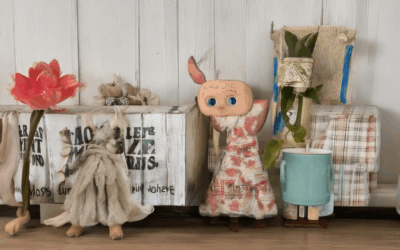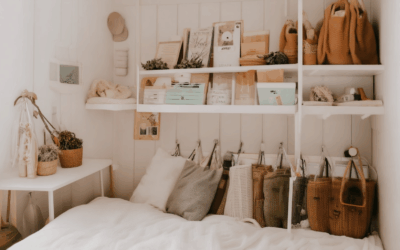Organizing your life can feel overwhelming, especially when faced with endless clutter and chaos. However, finding fun ways to organize yourself and your surroundings doesn’t have to be a daunting task. By blending creativity with practicality, you can transform your space into a tidy haven that reflects your personality and style. Whether it’s mastering fun ways to organize your home, discovering innovative shoe organizer ideas, or exploring toys organizer ideas, there’s a methodical approach to making every area of your life more efficient and enjoyable. From DIY organizers to leveraging digital tools like organizing your music Spotify, this guide offers a wealth of insights to help you declutter, streamline, and embrace a more structured lifestyle. Say goodbye to the stress of searching for keys or struggling to find your favorite playlist and hello to a more balanced, organized existence.
Key Takeaways
– Declutter your space first to boost focus and reduce distractions.
– Create a dedicated workspace to establish boundaries and promote mindfulness.
– Use organizational tools like planners or digital apps to manage tasks efficiently.
– Schedule regular cleanups to maintain a tidy environment and prevent clutter buildup.
– Digitally organize files with clear folders and labels for easy access to important documents.
– Label containers thoughtfully to save time and reduce frustration during organization.
– Set clear priorities to stay focused on what truly matters.
– Maintain a clean desk policy to foster productivity and readiness for the next task.
– Stay consistently organized by developing long-term habits for a balanced life.
– Start small by tackling one area at a time to avoid feeling overwhelmed.
– Set realistic goals with actionable to-do lists to stay focused and motivated.
– Declutter your space to create a peaceful and stress-free living environment.
– Organize your time with planners or digital calendars to track schedules effectively.
– Become flexible to adapt to life’s unpredictability and embrace new opportunities.
– Embrace routine to establish stability and consistency in your daily life.
– Seek support when needed, as outside perspectives can make a significant difference.
– Celebrate progress to stay motivated and recognize your achievements along the way.
– Adopt a minimalist mindset to reduce mental clutter and focus on what truly matters.
– Practice gratitude daily to foster balance and fulfillments.
– Set clear goals and regularly review your progress to stay motivated.

How Can I Make Organizing Fun?
Organizing can feel tedious, but with the right approach, it can become an enjoyable and even rewarding activity. Here are some strategies to make the process more engaging:
- Set Clear Goals:** Start by defining why you’re organizing. Whether it’s preparing for a move, decluttering a space, or creating a functional workspace, having a purpose can make the effort feel more meaningful.
- Use Music:** Play upbeat or energetic music to lift your spirits and keep you motivated. Different types of music may appeal to different personalities—some love classical, while others prefer upbeat pop or rock.
- Try Productivity Apps:** Utilize apps like Trello or Habitica to track your progress and earn rewards. These apps often incorporate gamification elements, making organization feel like a fun challenge.
- Personalize Your Space:** Transform a shelf or drawer into a welcoming area with colorful labels or decorative touches. Use clear containers and easily readable labels to keep things tidy and inviting.
- Create a Routine:** Establish a daily or weekly schedule for organizing. Dedicate a specific time each day to tackle tasks, turning it into a sustainable habit rather than a chore.
- Reward Yourself:** Celebrate milestones by treating yourself to something you enjoy, whether it’s a small reward or a brief pause to relax and recharge.
- Chunk Tasks:** Break large projects into smaller, manageable steps. Tackle one room or category at a time, focusing on quick wins to build momentum and confidence.
- Stay Visual:** Use sticky notes, markers, or colored bins to create visual cues and reminders, making the process more interactive and less overwhelming.
- Seek Support:** Involve friends or family for occasional help or encouragement. Sharing the effort can make it less lonely and more enjoyable.
- Maintain Your Environment:** Keep your workspace tidy as you go to prevent future clutter. Use a nearby trash bin or recycling pile to quickly discard unnecessary items.
- Label and Organize:** Clearly label items and storage containers to save time and reduce stress. Consider using color-coded systems for quick identification.
By incorporating these methods, you can transform organizing into a more enjoyable and effective habit. Remember, the key is to stay motivated and recognize the progress you’ve made along the way!
What are the 4 Cs of decluttering?
- Clear Out: The first step is to identify and remove items that no longer serve a purpose or bring value to your life. This helps create a clean foundation for organization.
- Categorize: Group similar items together based on their type, such as books, clothing, electronics, or seasonal items. This helps in managing and accessing them efficiently.
- Contain: Use appropriate storage solutions like bins, boxes, shelves, or drawers to keep your categorized items neatly stored and accessible.
- Cut Out: Evaluate and discard items that are no longer needed, unwanted, or no longer functional. This step ensures your space remains clutter-free and organized over time.

How to Be Organized in ADHD
Organizing can feel overwhelming for those with ADHD, but with the right strategies, it becomes manageable. Here’s a step-by-step guide to help you stay on track:
- Break Tasks into Smaller Steps
- Divide large projects into smaller, achievable tasks.
- Use a timer to manage focused work sessions.
- Visualize progress with checklists or visual reminders.
- Use Visual Reminders
- Post important dates and deadlines in visible places.
- Set reminders on your phone or calendar.
- Use sticky notes or digital task managers effectively.
- Establish a Consistent Routine
- Create a daily schedule that aligns with your energy levels.
- Stick to a consistent wake-up and bedtime routine.
- Plan meals and errands in advance to reduce decisions.
- Set Realistic Goals
- Write down 1-3 priorities each day.
- Adjust expectations based on your current energy level.
- Celebrate small achievements to boost motivation.
- declutter Your Space
- Organize frequently used items into designated zones.
- Minimize distractions by clearing clutter.
- Use clear containers for toys, clothes, and other belongings.
- Stay Flexible
- Accept that perfection isn’t the goal; progress is.
- Be open to adjusting your routine as needed.
- Seek support from friends, family, or professionals if needed.
Remember, organization is a skill that improves with practice. Be patient with yourself and celebrate your efforts. With the right tools and strategies, managing ADHD can lead to greater productivity and peace of mind.

What Are Good Ways to Organize?
Organization is a cornerstone of productivity and efficiency, helping individuals and teams alike maintain order in their lives and workflows. Here are some effective strategies to help you get started:
Top 10 Organization Tips
- Declutter Your Space First: Begin by removing unnecessary items from your workspace. A clean environment fosters focus and reduces distractions.
- Create a Dedicated Workspace: Allocate a specific area for work, study, or hobbies. This helps establish boundaries and promotes mindfulness.
- Use Organizational Tools: Employ tools like organizers, planners, or digital apps to manage tasks and deadlines effectively.
- Schedule Regular Cleanups: Establish a routine for cleaning and tidying your space to prevent clutter from accumulating.
- Digitally Organize Your Files: Keep electronic files organized with folders and labels, ensuring easy access to important documents and projects.
- Label Containers Thoughtfully: Use clear labels on storage containers to quickly find what you need without rummaging through items.
- Set Clear Priorities: Prioritize tasks based on urgency and importance, focusing on what matters most to stay on track.
- Maintain a Clean Desk Policy: Keep your desk tidy at the end of each day to foster a sense of order and readiness for the next task.
- Stay Consistently Organized: Develop long-term habits that support organization, such as regular review of schedules and task management systems.
By implementing these strategies, you can create a more structured and balanced life, allowing you to tackle challenges with confidence and efficiency. For more tips and resources, explore our homepage to discover additional tools and guides tailored to your organizational needs.
How to Sort Your Life Out
Sorting your life out can feel overwhelming, but breaking it down into smaller, manageable steps can make the process less daunting. Here’s a guide to help you get started:
- Start Small – Begin by focusing on one area of your life at a time. Whether it’s your workspace, schedule, or finances, tackle one thing at a time to avoid feeling overwhelmed.
- Set Realistic Goals – Create a to-do list with actionable items and prioritize them based on urgency and importance. Stick to the top three or five tasks each day to stay focused.
- Declutter Your Space – A clean and organized environment can significantly reduce stress. Go through your belongings and categorize them into keep, toss, or donate piles to create a more peaceful living space.
- Organize Your Time – Use tools like planners, digital calendars, or task management apps to track your schedule. Set clear deadlines and learn to say “no” to avoid overcommitting yourself.
- Become Flexible – Life is unpredictable, so expect changes and be ready to adapt. Stay open to new opportunities and learn from mistakes to grow stronger.
- Embrace Routine – Establish a daily routine that includes time for work, self-care, and relaxation. Consistency can bring stability and help you feel more in control.
- Seek Support – Don’t hesitate to ask for help from friends, family, or professionals when you need it. Sometimes, an outside perspective can make a big difference.
- Celebrate Progress – Acknowledge and celebrate the small victories along the way. This will keep you motivated and remind you of how far you’ve come.
Remember, sorting your life out is a journey, not a destination. Take it one step at a time and enjoy the process of becoming more organized and balanced. With patience and persistence, you’ll be able to create a life that feels more under control and fulfilling.

How to Be Super Organized
Being super organized requires a combination of strategy, discipline, and efficient systems. Here’s a step-by-step guide to help you achieve maximum productivity and peace of mind:
- Routine and Time Management
- Establish a consistent daily routine that includes wake-up times, meal times, and downtime.
- Use time-blocking to allocate specific periods for work, relaxation, and personal activities.
- Plan your week in advance, prioritizing tasks and setting realistic deadlines.
- Task Management
- Break down large projects into smaller, manageable tasks with clear milestones.
- Use a to-do list app or tool to track daily responsibilities and deadlines.
- Delegate tasks whenever possible to free up your time for more important activities.
- Declutter and Simplify
- Organize your physical and digital spaces to reduce clutter and improve accessibility.
- Create designated zones for work, relaxation, and storage to minimize distractions.
- Regularly review and discard items that no longer serve their purpose or bring joy.
- Digital Tools for Organization
- Use a reliable calendar app to schedule appointments and deadlines.
- Implement a note-taking system like Evernote or OneNote for capturing ideas and reminders.
- Try productivity apps like Trello or Asana to manage tasks and collaborate effectively.
- Mindset and Habits
- Adopt a minimalist mindset to reduce mental clutter and focus on what truly matters.
- Practice gratitude daily to foster a sense of balance and fulfillment.
- Set clear goals and regularly review your progress to stay motivated.
By implementing these strategies, you’ll not only enhance your productivity but also enjoy a more balanced and fulfilling life. Remember, organization is a habit, and with consistent effort, it becomes second nature.





0 Comments